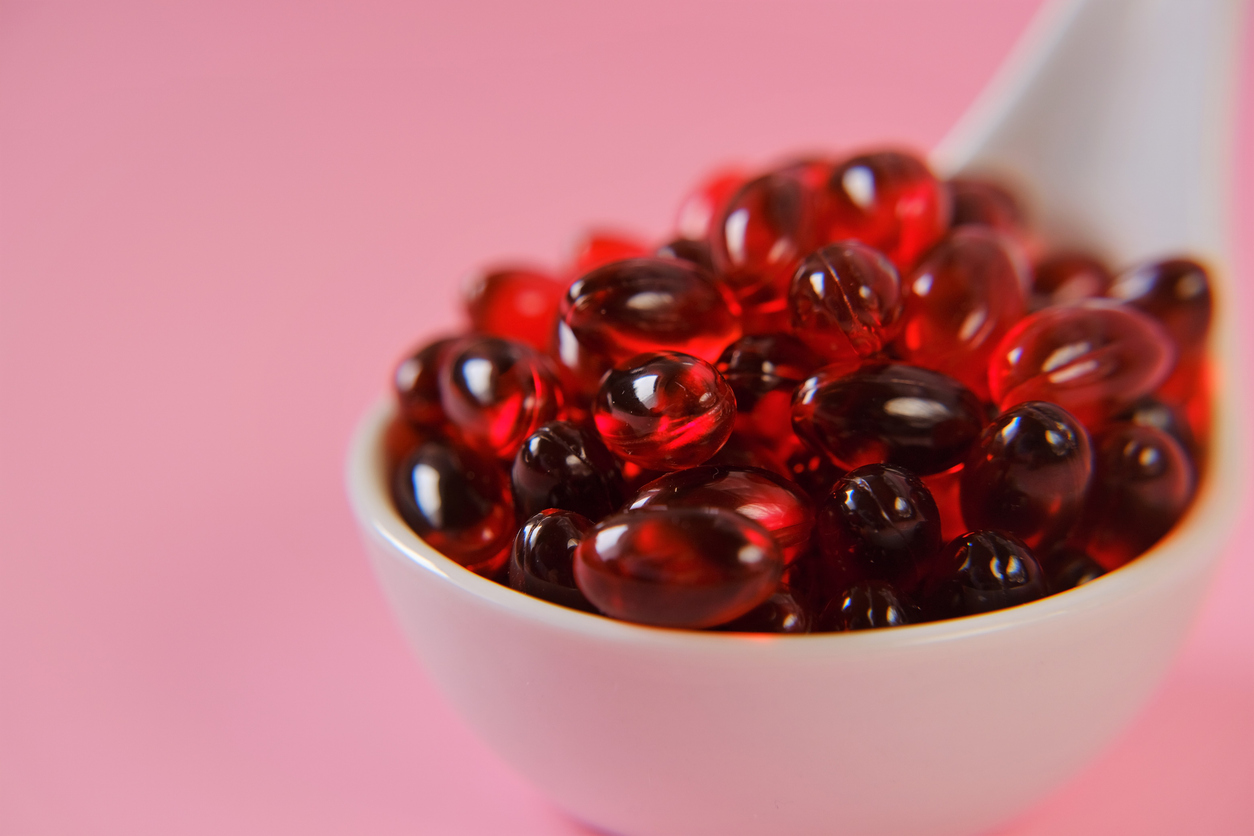Once again, consumers have been regaled with misleading headlines about the alleged harms of red meat. This time, it’s diabetes:
“Eating Red Meat May Increase Type 2 Diabetes Risk”—NY Times
“Too Much Red Meat is Linked to 50% Increase in Type 2 Diabetes Risk”—NPR
“Eating Red Meat More Than Once a Week Linked to Type 2 Diabetes”—CBS
This is based on a study that just appeared in the American Journal of Clinical Nutrition: “Red meat intake and risk of type 2 diabetes in a prospective cohort study of United States females and males” According to a Harvard press release, the researchers found:
“ . . . consumption of red meat, including processed and unprocessed red meat, was strongly associated with increased risk of type 2 diabetes. Participants who ate the most red meat had a 62% higher risk of developing type 2 diabetes compared to those who ate the least. Every additional daily serving of processed red meat was associated with a 46% greater risk of developing type 2 diabetes and every additional daily serving of unprocessed red meat was associated with a 24% greater risk.”
They conclude:
“Our study supports current dietary recommendations for limiting consumption of red meat intake and emphasizes the importance of different alternative sources of protein for T2D prevention.”
What continues to appall me is the degree to which the media uncritically parrots press releases from research organizations, often copying their language verbatim, without a critical appraisal, especially when inclusion of authoritative dissenting voices about a nutritional controversy might provide needed perspective. This is lazy science “journalism”. Don’t the credentialed and high-salaried science reporters at major publications have the wherewithal to analyze and critique a scientific paper?
Consider the source of the study: It’s the Harvard TH Chan School of Public Health, which has a tradition of aligning with planetary health goals emphasizing plant-based diets. Major partners are the Bill Gates Foundation and the American Heart Association, who hew to debunked low-fat, low animal protein recommendations. The study’s senior author is Walter Willet who co-chaired the Eat Lancet-Commission and is on record as declaring “we should eat red meat just once a week.”
Then there are the methodological problems that are too numerous to catalogue here. But among the most salient, this is an observational study, based on diet recall captured via food frequency questionnaires, a much-maligned source of unreliable data.
For example, women in the lowest cohort of meat consumption reported consuming a mere 1200 calories per day! This is highly implausible, because they’d literally be running on fumes.
Moreover, total meat consumption included processed meat, unprocessed meat, and meat from sandwiches, hamburgers, hot dogs, tacos, lasagna and other mixed meat and carbohydrate products! (“Want fries and a Coke with that Big Mac?”)
In fact, a recent review that looked exclusively at health consequences of unprocessed meat consumption alone concludes:
“While there is some evidence that eating unprocessed red meat is associated with increased risk of disease incidence and mortality, it is weak and insufficient to make stronger or more conclusive recommendations.”
Of course, there was no effort by Harvard researchers to differentiate health outcomes for those exclusively consuming grass-fed meats—for good reason, because they’re so few and far between.
(I once posed a question during the Q&A at a nutrition conference as to whether there’ll ever be a quality study comparing health outcomes of consumers of organic or grass-fed vs. conventional animal products. The panelist assured the audience that such a study will NEVER be done, because it would take decades to complete, cost millions, and would comprise such a narrow population cohort as to be infeasible.)
Then there’s “Healthy User Bias” that plagues virtually all research that attempts to tell us what to eat or drink. By that is meant the tendency for people who follow more selective diets to engage in a wide range of healthy behaviors—they exercise more, are more weight-conscious, get checkups more often, eschew alcohol and cigarettes, or may be more affluent so they can afford healthy foods; they may be more health literate or live in less polluted upscale neighborhoods, free from the stress of a hard-scrabble existence in poverty zones.
The study authors, cognizant of this potential confounder, tried familiar statistical adjustment tools to match red meat eaters with non-eaters of equivalent circumstances. But these techniques inevitably don’t account for all healthy-user differentiators.
Without getting into the weeds of statistics, there’s some sleight-of-hand when the study authors tout relative risk instead of absolute risk reductions of diabetes. 62% higher risk in the highest meat-eating cohort sounds huge, but if you look at the absolute numbers, they’re pretty trivial. Even if we accept this difference, the absolute percentage of big consumers of red meat who developed diabetes was a mere 0.52% (5 in 1000) vs 0.32% (3 in 1000) for lowest consumers. So, yes, 62% more diabetes, generating lurid headlines, but among thousands of individuals, that might equate to a mere handful of cases.
In my opinion, the biggest problem with this study is that the researchers sought to downplay the variable of BMI (body mass index). So determined were they to reach the preordained conclusion that red meat is bad that they failed to highlight the association of red meat with overweight—the prime driver of type 2 diabetes.
Therefore, the title of this paper might more appropriately be: “Red meat eaters tend to be fatter and therefore get more diabetes”. But that only applies when you indiscriminately hoover up everything in sight, as unfortunately is the case with many careless omnivores.
Finally, there’s the issue of “biological plausibility”. For every scientific paper written since time immemorial showing one thing or another, there’s always a section on biological plausibility—which means, according to the laws of known science, does the conclusion make sense?
For example, there might be a concordance between a Republican Congress and a heightened incidence of accidental drowning. But what’s the plausibility that a government policy is making people take more chances in the water?
For the Harvard red-meat-causes-diabetes paper, the authors are at pains to cite a reason for meat’s pernicious effect on blood sugar. Since diabetes is a sugar disease, it makes sense to assign blame to dietary carbohydrates, which strain the body’s capacity to process their byproduct, glucose.
And, indeed, many papers have demonstrated precisely that—the prevalence of diabetes is directly proportional to intake of carbohydrates, especially refined carbohydrates that release their sugar content more readily.
And so, absent that, the Harvard researchers are left to opine that some inherent toxic property of carb-free red meat undermines insulin response. Is it saturated fat? Does it gum up cellular metabolism, as they claim?
Rather, a 2020 study concludes that “Meta-analyses of observational studies found no association between SFA [saturated fatty acid] intake and heart disease”. In fact, the ketogenic diet, heavily reliant on red meat and full-fat dairy, while slashing carbs, has been shown to be a useful tool against diabetes.
The authors then pivot to an explanation that the iron content of a high-meat diet might adversely affect liver function, undermining blood sugar control. This may be the case in hemochromatosis, a hereditary liver disease, whose ultimate consequence may be “bronze diabetes” with skin pigmentation associated with iron deposits. But this is a condition where iron is sky-high—many times higher than what an ordinary individual might encounter even with routine red meat consumption. The incidence of hereditary hemochromatosis is low—1 in 300 to 500 individuals—and is exceedingly rare in females.
Alternatively, they vaguely suggest, might it be a microbiome effect? We know that the composition of intestinal bacteria can influence blood sugar metabolism. But ample dietary fiber, with its prebiotic content, can nourish the GI milieu even when meat is liberally consumed. So who says a red meat eater can’t accompany their diet with generous portions of plant foods?
Or, blame the nitrite preservatives in cured meat; indeed some studies suggest a link between nitrites in bacon, hot dogs, and luncheon meats and diabetes. But nobody is suggesting these ultra-processed foods are good for you. Is natural pasture-raised beef guilty merely by association?
Running out of reasons? Maybe red meat is pro-inflammatory? But it’s not, according to a comprehensive review: “Our analysis does not support previous observational research associations linking red meat intake and inflammation.”
What eludes the researchers is that folks who eat lots of red meat might simply consume more calories and are more prone to overweight!
Or maybe they cynically downplayed that obvious conclusion to buttress their anti-meat agenda?
Of course, consumers of red meat don’t have to be fat. One can selectively consume red meat while maintaining a high activity level and limiting overall caloric intake, at the same time consuming lots of fruits, vegetables, beans, nuts and fats like olive oil, while minimizing starches, sugars and ultra-processed foods.
I’m a case in point. I consume red meat moderately as part of low-carb diet, but I won’t forego a hearty portion of grass fed steak, burger, natural sausage, brisket, stew or short ribs. I’m 5’10 and 162 pounds which translates to a BMI of 23.2, placing me in a healthy range in the lower quartile for males of my age (the average is 29.8 with over 30 considered obese).
I had our nutritionist Leyla run a body composition analysis on me the other day which yielded a fat percentage of 12, placing me under the 24% considered optimal for men.
And I consistently run a hemoglobin A1c less than 5.0, which indicates no tendency toward diabetes. My arteries are free of plaque according to imaging.
Is red meat poisoning me and the many others like me who follow a balanced diet that includes ample animal protein? That dog won’t hunt!
For a more comprehensive, albeit somewhat technical, takedown of the Harvard paper, see Dr. Zoë Harcombe’s recent newsletter article, “Red meat & Type 2 Diabetes”.







